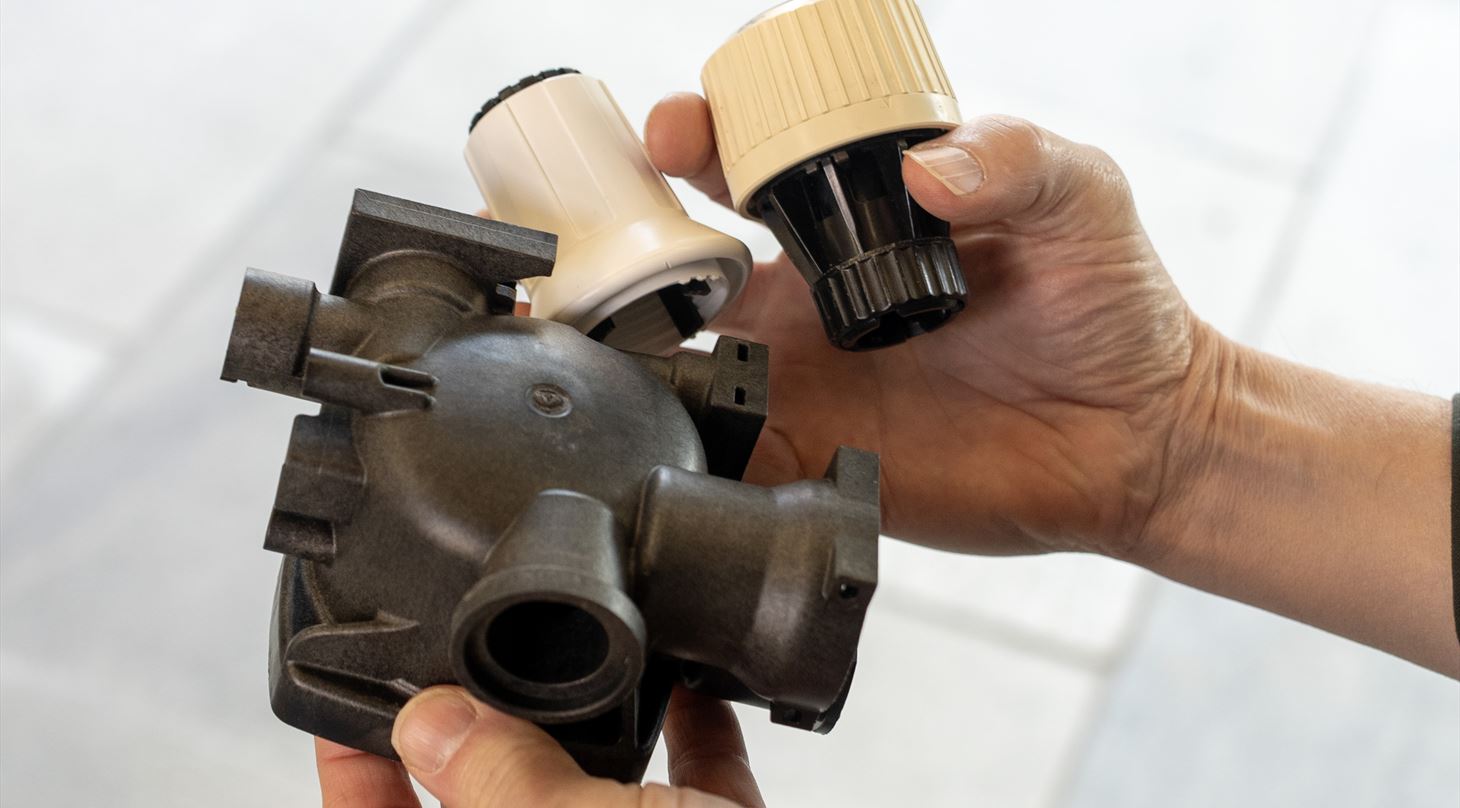
End-of-life industrial plastics can now be recycled more easily
A three-year collaboration between a group of Denmark's largest industrial companies has cracked several codes for increased recycling of the industry's complex plastic products. At the same time, companies are calling for more cross-industry collaboration.
At first glance, a thermostat from Danfoss, an insulin pen from Novo Nordisk, and a circulating pump from Grundfos may not look very similar. But they are all examples of industrial plastic products that are lagging behind in the circular transition. While consumer plastic waste is collected and increasingly sorted and recycled, industrial plastic products typically end up in incinerators. The CIP (Circular Industrial Plastic) partnership has sought new solutions to this with support from the Danish Environmental Protection Agency.
- When industrial giants like Novo Nordisk, Grundfos, Danfoss and Coloplast choose to join forces to increase the recycling of their products, it shows that the task is too complex for them to do it alone. But at the same time, the will is there. The key lies in the broad partnerships across industries, where we can make each other smarter, explore new collaborations and create the future together," says Executive Vice President Sune Dowler Nygaard, Danish Technological Institute, who has led the CIP partnership and been a technological knowledge partner.
Match-making for plastic products
Along the way, the companies' products have been matched both with each other to pave the way for collaboration and with recycling technologies at Trebo, Zirq Medical, Makeen, and Topsoe to explore how materials on the one hand and sorting and recycling technologies on the other can interact in a future circular economy for industrial plastics.
Take-back scheme for thermostats
For example, it has been found that the plastic material in old Danfoss thermostats produced since the 1940s can be used in new thermostats. This has led to the establishment of a take-back scheme where old thermostats are collected for replacement and renovation projects.
- To get to this point, thousands of old thermostats have been taken back, carefully separated, sorted, shredded and tested by the Danish Technological Institute. In a way it's very low-tech, but it has accelerated our development work, so we are now working on a prototype thermostat using plastic from old thermostats. The value is obvious, says VP RD&E HydronicS, Nanna Aage Lundsgaard from Danfoss.
Similarly, Grundfos is now emphasising the recycling of old pump housings, which, in collaboration with the company Trebo, are dismantled and the different types of plastic separated to be used in the production of new pump housings.
Used insulin pens get a new life
Before the CIP partnership, Novo Nordisk had already established a return scheme where patients can return used insulin pens to pharmacies. The goal for Novo Nordisk is a future where plastic materials can be recycled multiple times in new high-quality products. The company has therefore partnered with Zirq Medical, which cleans, breaks down and sorts the plastic from the insulin pens, and the CIP partnership has identified potential buyers and applications.
- Our participation in CIP has provided Novo Nordisk with valuable insights into the opportunities for recycling of industrial plastics - including both mechanical and chemical recycling, which we have utilised in our latest strategy for our take-back scheme, says Dorethe Nielsen, Vice President of Corporate Environmental Strategy at Novo Nordisk.
Will reap the benefits in the long run
The CIP partnership concludes with a conference at Industriens Hus to inspire the industry to take new paths together to give used industrial plastics a new life. The conference is organised together with the Confederation of Danish Industry and the Danish Plastics Industry.
- We look forward to sharing experiences and solutions, because the circular transformation of society is entirely dependent on companies with high ambitions and courage. I think the CIP partnership has been a good exponent of this. At the same time, I have no doubt that there are long-term benefits to be reaped by the companies that are leading the way right now, says Sune Dowler Nygaard rom Danish Technological Institute.
Facts about CIP
CIP (Circular Industrial Plastics, 2022-25) is a strategic partnership supported by the Environmental Technology Demonstration and Development Program under the Danish Ministry of Environment and Gender Equality. The partnership consists of Novo Nordisk, Grundfos, Danfoss, Coloplast, F&H, Trebo, Zirq Medical, Makeen EnviroTech, Crossbridge Energy, Topsoe, Aarhus University, DTU, Geminor, BASF, Marius Pedersen and Danish Technological Institute.
The partnership's vision is to create concrete recycling solutions for industrial plastics driven by the specific needs of industry in the circular transition.
Press contact:
- Senior Communications Consultant René Wad Andersen, Danish Technological Institute, Mobile 7220 1474, Email rea@teknologisk.dk
- Professional contact:Senior Project Manager, PhD, Søren Haack, Danish Technological Institute, Mobile 7220 2338, Email sorh@teknologisk.dk